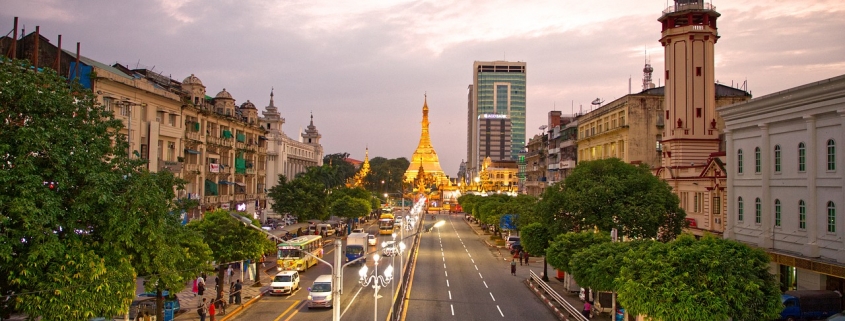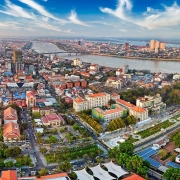What happened in Myanmar in 1962?
Topic of Study [For H2 History Students]:
Paper 2: Search for Political Stability
Section B: Essay Writing
Theme I Chapter 1: Approaches to Governance
Historical Context: An unstable democracy
Following the assassination of the renowned political figure General Aung San on 19 July 1947, U Nu assumed leadership as Prime Minister in the civilian government of Burma on 4 July 1948. Although the Anti-Fascist People’s Freedom League (AFPFL) won the majority (171 out of 182 seats), it was battered by continued political disunity. The fragmentation of the AFPFL took shape when U Nu sought to shape the coalition into a unitary party.
Consequently Swe and Nyein formed the Stable AFPFL but the League’s HQ was in possession by the Nu-Tin faction as the President (U Nu), the General-Secretary (Thakin Kyaw Tun) and the Treasurer (U Tin) were all in one group in opposition to Swe-Nyein. The Nu-Tin formed the Clean A FPFL implying that their AFPFL was without any dirty ones in it.
… The AFPFL split created two major problems: inheritance of assets and title of AFPFL, and the choice of arena for the final showdown between the two brawling factions.
An excerpt from “The Split Story” by Sein Win, 23 March 1959.
Insurgencies and the military intervention
In addition, civil war broke out in 1949 between the central government and different insurgent forces. Origins of these violent clashes can be traced to disputes over the terms of agreement made during the Panglong Conference. For instance, the 1947 Constitution stated that the Shan, Kachin and Karenni became autonomous states within the Union and could secede after ten years. Yet, other groups like the Karens were not involved in the Conference, thus they were not accorded equal rights as the above-mentioned groups.
It is thus clear that the signatories to the Panglong Agreement believed they were assenting to early independence from Britain and the perpetuation of their freedom from British and Burman interference in their internal affairs; that, whatever their commitment, it was not to permanent and irrevocable integration in an independent Union of Burma ruled by Burmans.
… Nor did Panglong’s signatories represent all ‘the peoples of the Frontier Areas’. A delegation of four Karens arrived late at the conference, attended as observers and were not consulted … and the Chins of the Arakan Hill Tracts, Was, Nagas, Lushais, Palaungs, Paos, Akhas, Lahus and dozens of smaller tribes were not represented at all.
An excerpt from “Burma: The Curse of Independence” by Shelby Tucker.
In response to mounting political and social unrest, Prime Minister U Nu requested the military institution, helmed by Ne Win, to form a caretaker government in October 1958. The agreement was made to oversee the restoration of political stability before general elections were held in 1960.
Coup d’état: Ushering an age of military rule
As expected, the military handed over reigns to the AFPFL in spite of their borderline success at maintaining electoral dominance in 1960. However, public perceptions had shifted in favour of the military, given the incumbent’s ability to ensure stability. On 2 March 1962, Ne Win launched a military coup. The General became the Chairman of the Revolutionary Council and Prime Minister of Burma.
General Ne Win’s assumption of power on 2 March 1962, while not unexpected, was nonetheless a surprise to many. It was executed in secrecy, and apparently even the deputy commander of the armed forces, Brigadier General Aung Gyi, was not informed until the next morning, though he must have been expecting it as early as November 1961, when he raised the prospect with colleagues.
… Two days later, Ne Win assumed all executive, legislative and judicial authority as Chairman of the Revolutionary Council. While the institutions of the 1947 Constitution were dismantled, so were the policies and activities of foreign institutions.
An excerpt from “General Ne Win: A Political Biography” by Robert Taylor.
What can we learn from this article?
Consider the following question:
– Assess the significance of the military in the maintenance of political stability in post-independence Southeast Asia.
Join our JC History Tuition to find out more about the essay topic on Approaches to Governance. The H2 and H1 History Tuition feature online discussion and writing practices to enhance your knowledge application skills. Get useful study notes and clarify your doubts on the subject with the tutor. You can also follow our Telegram Channel to get useful updates.
We have other JC tuition classes, such as JC Math Tuition and JC Chemistry Tuition. For Secondary Tuition, we provide Secondary English Tuition, Secondary Math tuition, Secondary Chemistry Tuition, Social Studies Tuition, Geography, History Tuition and Secondary Economics Tuition. For Primary Tuition, we have Primary English, Math and Science Tuition. Call 9658 5789 to find out more.











